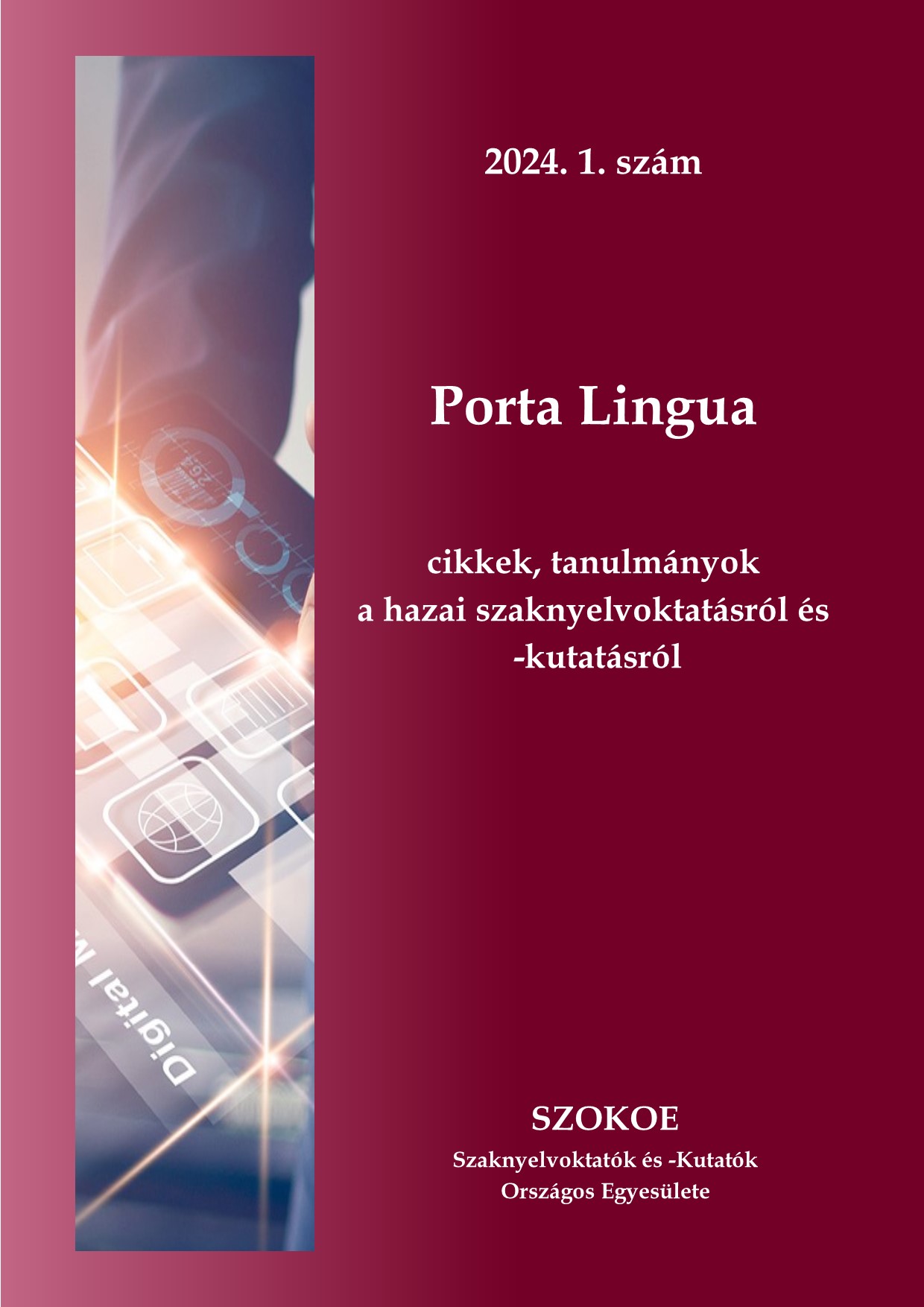Curriculum design and pedagogical opportunities in the course “Developing Business Skills in French”
Abstract
This paper aims to present the structure and pedagogical concept of the course while also illustrating how French-language business communication activities foster the development of soft skills identified in the relevant academic literature. Drawing on the course syllabus, examples are provide of the exercises used to approach specific topics and examine how these themes and activities present communicative challenges for students. The topics covered include personal branding, the role of empathy in conflict management, the exploration of individual values and leadership competencies, and the introduction of innovative presentation techniques such as the Pecha Kucha format. The paper also discusses challenges encountered during the course implementation. Finally, it highlights why teaching this subject offers valuable opportunities for instructors involved in language-for-specific-purposes (LSP) education.
References
Algan, Y. – Huillery, É. – Prost, C. (2018): Confiance, coopération et autonomie: pour une école du XXIe siècle. Les Notes du conseil d’analyse économique. 2018/3. 1–12. https://doi.org/10.3917/ncae.048.0001
Chaouite, A. (2007): L’interculturel comme art de vivre. L’Harmattan: Párizs.
Európai Bizottság (2011): State of the Innovation Union 2011. COM 2011.
Coulet, J-C. (2016): Compétence, compétences transversales et compétences clés: peut-on sortir de l’impasse? Éducation et socialisation. 41. sz. Online elérhető : https://journals.openedition.org/edso/1708. https://doi.org/10.4000/edso.1708
Du Roscoat, B. – Servajean-Hilst, R. – Bouvet, S. (2022): Les soft skills liés à l’innovation et à la transformation. Online elérhető: https://www.researchgate.net/publication/360335248_Les_soft_skills_liees_a_l'innovation_et_a_la_transf ormation_des_organisations_Comment_agir_dans_l'incertitude
Grundke, R. et al. (2018): Which skills for the Digital Era? Returns to Skills Analysis. OECD Science, Technology and Industry Working Papers. 2018/09, OECD Publishing: Párizs. https://doi.org/10.1787/9a9479b5-en
Héry, M. (2018): Les impacts de l'automatisation du travail. Etudes. 2018/9. 43–54. https://doi.org/10.3917/etu.4252.0043
Kotsou, I. (2019): Intelligence émotionnelle et management. Comprendre et utiliser la force des émotions. De Boeck Supérieur: Louvain-la-Neuve.
Mouillot, Ph. (2019): Terminologie et enseignement: le double paradoxe des ‘soft skills’. The Conversation. 2019. november 28. Online elérhető : https://theconversation.com/terminologie-et-enseignement-ledouble-paradoxe-des-soft-skills-127825
Osterwalder, A. – Pigneur, Y. (2011): Business Model Nouvelle Génération: Un guide pour visionnaires… Pearson: Párizs. Online elérhető : https://gamestorming.com/empathy-map/
Robbins, S. et al. (2014): Management 9e edition: L'essentiel des concepts et pratiques. Pearson: Franciaország
Internetes hivatkozások
Codenames: https://ninjabunny.github.io/KodeNames/
Empathy Map: https://gamestorming.com/empathy-map/
Pecha Kucha: https://www.pechakucha.com/presentations/what-is-pechakucha
Tóth-Mószer Szilvia (2022) : Értékelés, osztályzás, szöveges értékelés: https://prezi.com/rz0nqlq_dbvy/ertekeles-osztalyzas-szoveges-ertekeles/ (Értékelés: jó úton a cél felé - címmel a BGE számára 2022. okt.21 és dec.2 között tartott online továbbképzés)



